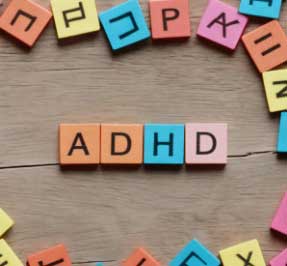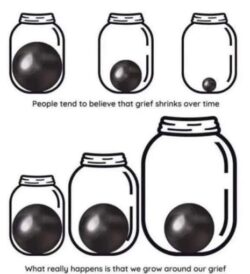 Dealing with the loss of physical or mental capabilities is never an easy process. In fact, many people experience the same stages of grief that are typically associated with the death of a loved one. It is normal to experience sadness, rage, disbelief, and helplessness. It’s normal, but that doesn’t mean that it’s easy. While these feelings are shared by nearly everyone who has experienced this type of loss, whether from an accident that leaves them paralyzed, an illness that removes the ability to speak, or a traumatic brain injury that affects memory, when it is happening to you, the experience is yours alone, and it can result in feeling isolated, as though others can’t understand what you’re going through.
Dealing with the loss of physical or mental capabilities is never an easy process. In fact, many people experience the same stages of grief that are typically associated with the death of a loved one. It is normal to experience sadness, rage, disbelief, and helplessness. It’s normal, but that doesn’t mean that it’s easy. While these feelings are shared by nearly everyone who has experienced this type of loss, whether from an accident that leaves them paralyzed, an illness that removes the ability to speak, or a traumatic brain injury that affects memory, when it is happening to you, the experience is yours alone, and it can result in feeling isolated, as though others can’t understand what you’re going through.
Depending upon the type of ability loss you’ve experienced, different types of treatment and therapies may be available to you, but your recovery depends upon far more than physical and occupational therapies. These are wonderful services, not to be neglected, but you also have to tend to your emotional needs in order to reach your fullest potential.
A life coach can offer you the benefits of many types of coping skills, both practical and emotional, to help you make the necessary adjustments to thrive after the loss of physical or mental capabilities.
Learning to Focus on What You Can Do
When you’re in the midst of grief, the removal of one (or multiple) abilities can make you feel as though you’re not capable of doing anything. Much of the emotional healing you will do will focus around working with the abilities you do have. Both the brain and the body are amazingly transformable, and you will learn ways of compensating for your lost abilities through the use of the abilities you do have.
In addition to helping you learn to use your personal strengths, your life coach will be able to recommend tips and systems to help you overcome the challenges you’re facing. For instance, if you’ve suffered a brain injury that affects your memory, your life coach might teach you how to set up a system using a daily schedule on paper, along with setting alarms on your phone, to help you keep your life on track.
A Safe Space for Grief and Rage
Your grief and rage must be expressed in order to be released. There are a wide variety of methods that can be used to help you access, express, and release strong emotions, including sandplay therapy, Eye Movement Desensitization and Reprocessing Therapy, journaling, art therapy, and simply having a safe space to talk about things you might not feel comfortable sharing with friends and family members.
Releasing Self-Judgment
Remember that strong feelings like grief and rage aren’t bad. All feelings are morally neutral, so there is no reason to judge yourself harshly for having feelings you perceive as negative. Falling into self-judgment over feeling angry or depressed will only perpetuate the cycle. Healing occurs in phases, and sometimes it is a dance of three steps forward and two steps back, so have patience with yourself and the process. You have every right to feel what you feel, and you deserve your own compassion and acceptance.
Devon is a Licensed Mental Health/Substance Abuse Counselor, Personal Life Coach, Certified Personal Trainer, and a nationally certified teacher. She is committed to helping young people be their highest selves in all areas: body, mind, and spirit. Her expertise, enthusiasm, energy and educational background serve to create a unique blend of services and techniques employed to help you reach your goals. For counseling sessions, coaching, or training, please contact her at 505.469.0779 or he***************@***il.com.



